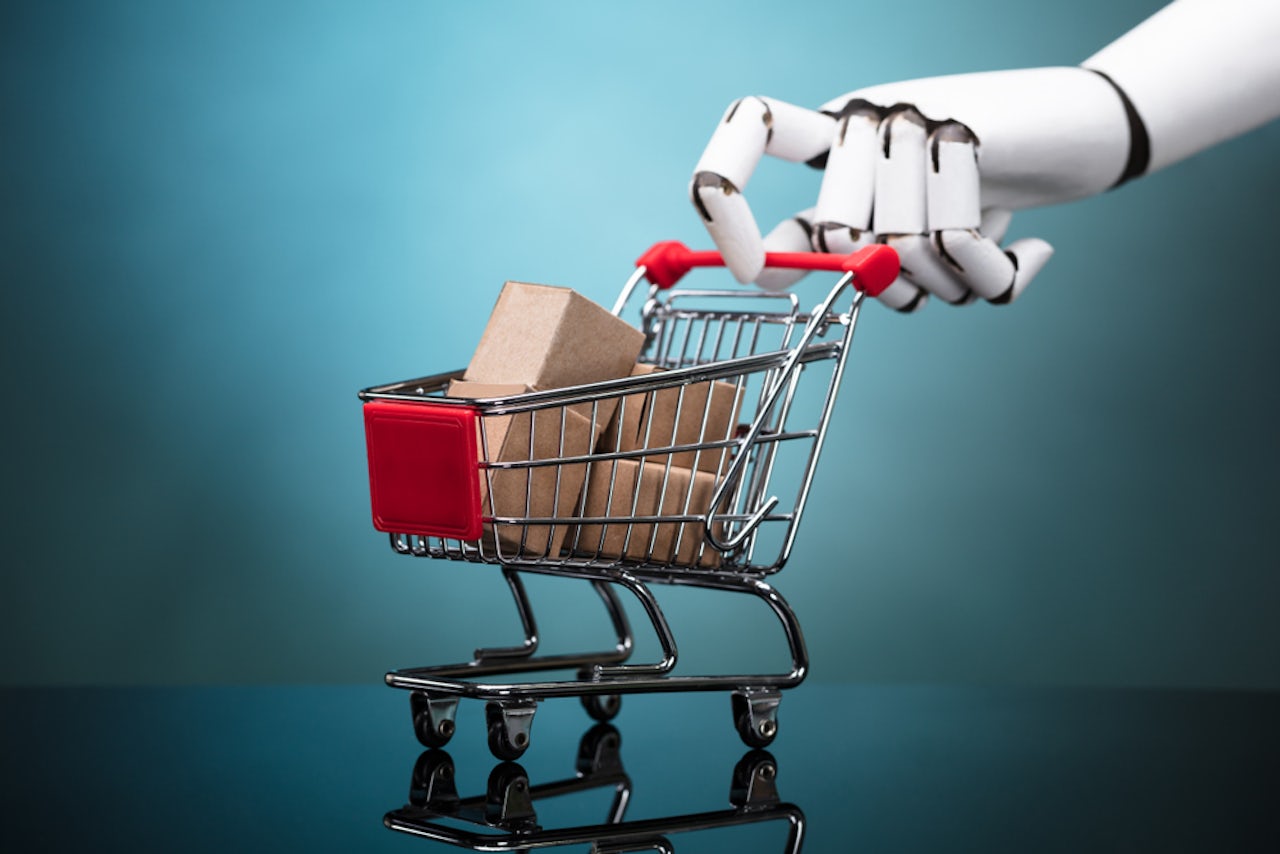On Friday, Walmart announced it would soon be incorporating automated technology into one of its superstores in Salem, Massachusetts as part of a pilot program to streamline the company’s online grocery pickup service. The store will receive a 20,000 square foot extension to house an automated system called Alphabot, which stores Walmart products in warehouse-style stacks that are easily accessible by the company’s fleet of tiny mobile carts. Once a customer places an order online for pickup, the carts will whizz around the building gathering their items before delivering them to human employees for assembly and delivery.
“Although this is a small pilot, we expect big things from it,” wrote Walmart’s Executive Vice President of Central Operations, Mark Ibbotson, in a press statement. “We have a lot to learn about this new technology, and we’re excited about the possibilities of how we can use it to make the future of shopping – and working – even better.”
According to Walmart, the Alphabot system is much faster at collecting customers’ orders than a human associate, which isn’t all that surprising. The company’s main competitor, Amazon, figured out that robots are better at doing repetitive menial tasks — like grabbing your Blu Ray copy of the original Mamma Mia movie from some forlorn warehouse shelf — than humans years ago, and has been systematically replacing its non-automated workforce ever since. More to the point, robots don’t faint, get hurt, get tired, or lobby for better pay or rights, elements that are immensely appealing to companies like Amazon and Walmart.
As of 2017, Amazon had over 100,000 robots in its countless warehouses around the world, and shows no signs of slowing down anytime soon. Without automation, it wouldn’t be able to continue growing while offering the sort of startlingly low prices that have allowed it to threaten the security of physical staples like Walmart. While the upfront costs may be high, robots don’t need bathroom breaks, benefits, or, you know, a living wage — which is music to companies like Amazon and Walmart’s ears.
Countless startups are trying to make the same capitalistic wet dream a reality for smaller businesses. Zume Pizza’s robot pizza truck both bakes and delivers piping hot pizza to customers relatively autonomously with the click of a button, and Starship Technologies has a fleet of autonomous food delivery robots designed to cut out those pesky human couriers — though the mere sight of them often inspires human-on-robot violence. BotBox, Nuro, and countless other startups do the same.
Although Walmart’s Alphabot system is currently limited to the Salem test store, it seems likely that something similar will eventually be deployed on a much larger scale. The company’s online grocery pickup system is popular, but faces competition from the flurry of grocery and meal kit startups currently available, in addition to AmazonFresh and Prime Now. Since Amazon purchased Whole Foods last year, the company has rolled out online ordering and delivery options in Florida and New York.
